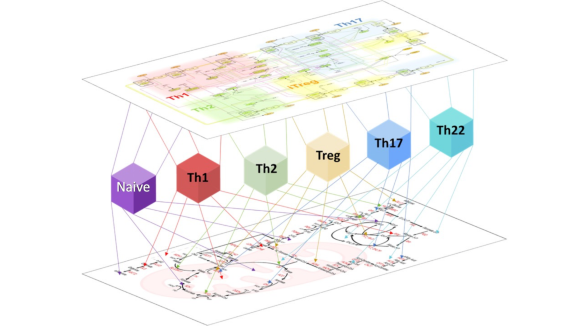 Dr. Jolly leads the Cancer Systems Biology group at Indian Institute of Science, Bangalore. His research focus is on decoding the underlying design principles of various cell-fate decision networks as well elucidating the emergent dynamics of phenotypic plasticity and non-genetic heterogeneity in multiple biological contexts – cellular differentiation and reprogramming, cancer metastasis and resistance against many therapies.
Dr. Jolly leads the Cancer Systems Biology group at Indian Institute of Science, Bangalore. His research focus is on decoding the underlying design principles of various cell-fate decision networks as well elucidating the emergent dynamics of phenotypic plasticity and non-genetic heterogeneity in multiple biological contexts – cellular differentiation and reprogramming, cancer metastasis and resistance against many therapies.
 Dr. Das is an Assistant Professor leading a computational systems immunology research group at the Center for Systems Immunology, University of Pittsburgh. His research focuses on the development and use of novel network systems and functional genomic approaches to perform multi-scale integration of genomic and epigenomic datasets with biological networks to identify molecular phenotypes underlying a range of immunological disorders. He also uses high-dimensional statistical and interpretable machine learning techniques to integrate multi-omic datasets and elucidate molecular mechanisms of immune regulation and dysregulation.
Dr. Das is an Assistant Professor leading a computational systems immunology research group at the Center for Systems Immunology, University of Pittsburgh. His research focuses on the development and use of novel network systems and functional genomic approaches to perform multi-scale integration of genomic and epigenomic datasets with biological networks to identify molecular phenotypes underlying a range of immunological disorders. He also uses high-dimensional statistical and interpretable machine learning techniques to integrate multi-omic datasets and elucidate molecular mechanisms of immune regulation and dysregulation.

